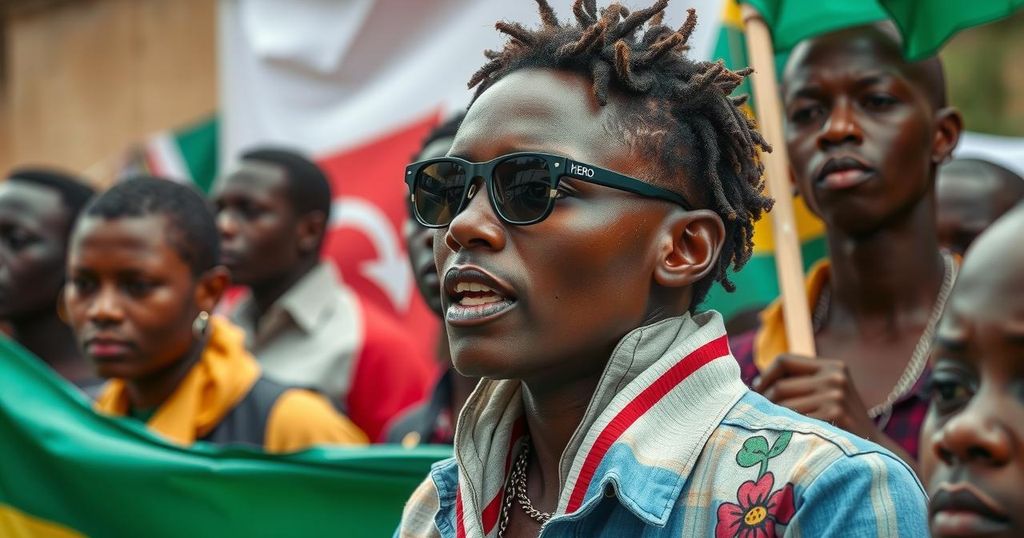Cars
AFRICA, AMNESTY INTERNATIONAL, CHANGE TANZANIA, EUROPE/ASIA, FINANCE BILL, HUMAN RIGHTS, JUSTIN MUTURI, KAMPALA, KENYA, KIDNAPPING, KILIMANI, LAW SOCIETY OF KENYA, MARIA SARUNGI TSEHAI, NAIROBI, PROTESTS, PUBLIC SERVICE MINISTRY, RUTO, SAMIA SULUHU HASSAN, TANZANIA, TOYOTA, TSEHAI, TURKEY, UGANDA, VIOLENCE
Daniel O'Connor
0 Comments
Tanzanian Rights Activist Maria Sarungi Tsehai Abducted in Nairobi
Maria Sarungi Tsehai, a Tanzanian rights activist, was abducted in Nairobi but released after intervention by rights groups. Her case showcases issues of transnational repression and the deteriorating human rights situation in both Tanzania and Kenya, amid rising concerns of enforced disappearances and government crackdowns on dissent.
On Sunday, prominent Tanzanian rights activist Maria Sarungi Tsehai was kidnapped in Nairobi but was later released following swift actions by various human rights organizations. Having garnered a significant following of 1.3 million on X through her advocacy for political change and women’s rights in Tanzania, she has been living in exile due to the repressive political climate in her home country. Amnesty International reported that Tsehai was abducted by three armed men in a black Toyota Noah in the Kilimani area. Her organization, Change Tanzania, expressed worries that the abductors were Tanzanian security agents targeting her for her outspoken criticisms. Hours after her abduction, Faith Odhiambo, the president of the Law Society of Kenya, confirmed on X that Tsehai was safe and had been released. In her statement, she highlighted the troubling reality of human rights conditions in the region, referencing a video in which Tsehai expressed gratitude for her rescue and stated, “Today I have been saved.”
The situation around Tsehai’s abduction casts a shadow not only on Tanzania but also raises alarms regarding Kenya’s evolving role in allowing such transnational political repression. Rights organizations have accused Tanzanian President Samia Suluhu Hassan of intensifying oppression against dissenting voices ahead of the upcoming elections, characterized by numerous abductions and arrests. This trend is not new to Kenya, which has been criticized for permitting foreign governments to abduct their citizens. Notable prior incidents include the forced returns of Turkish refugees and the abduction of Ugandan opposition figure Kizza Besigye in Nairobi last year. Domestic critics of President William Ruto have themselves faced abduction, with reports indicating that at least 82 individuals have gone missing during recent protests. Even the public service head, Justin Muturi, revealed that his own son had been a victim of abduction, underlining the scale of this crisis.
The alarming rise in abductions is underscored by Kenya’s National Commission on Human Rights, while the high court has summoned law enforcement officials to answer for these incidents. President Ruto has acknowledged abuses by his administration’s security forces, even vowing to address the crisis, albeit placing some responsibility on parents. Diplomatic representatives from the United States and Britain have called for thorough investigations, reflecting the international community’s concerns over these human rights violations.
Maria Sarungi Tsehai is a well-known human rights advocate focused on political reform and women’s rights in Tanzania. Her activism has garnered significant attention, resulting in a large following and, unfortunately, the need to live in exile due to government repression. With ongoing political tensions in Tanzania and recent incidents of abductions in Kenya, the context of Tsehai’s abduction is indicative of broader issues of transnational political repression and human rights violations in the region. Kenya’s reputation for permitting foreign interventions in abduction cases, coupled with its own issues of internal repression against dissenters, amplifies the urgency of addressing these human rights challenges.
The abduction of Maria Sarungi Tsehai not only highlights the dangers faced by activists in East Africa but also underscores a concerning pattern of transnational repression, particularly in Kenya. As political climates become increasingly hostile, such incidents may reflect heightened risks for those advocating for human rights and political reform. The responses from local and international organizations, alongside the allegations against governments, point to a critical need for protective measures and accountability in safeguarding human rights.
Original Source: www.youralaskalink.com




Post Comment